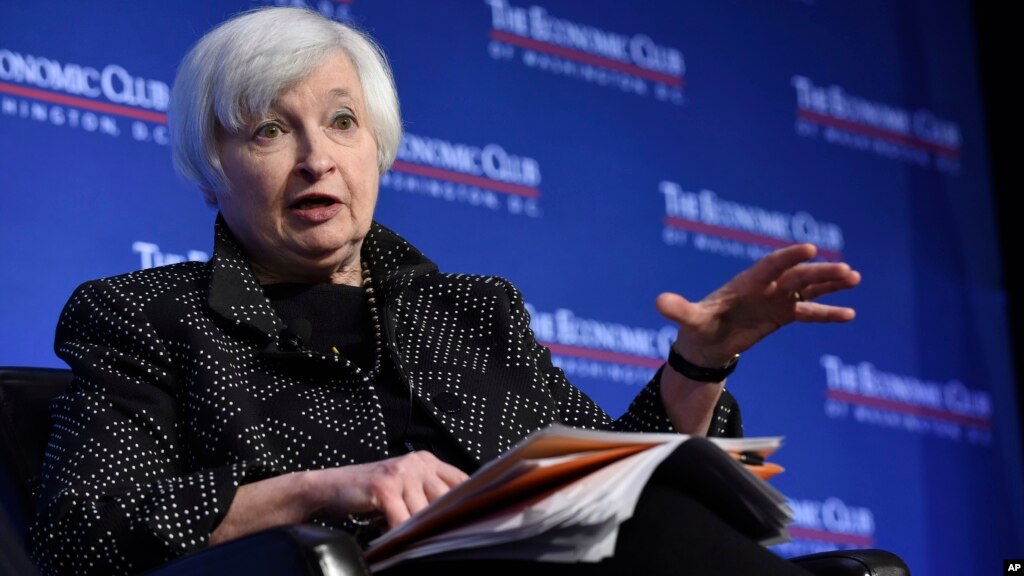
The head of the United States central bank says she expects the U.S. job market to continue to improve.
Janet Yellen says the inflation rate should rise close to a yearly rate of 2 percent. That inflation rate would keep prices stable and support the economy, says the central bank, or Federal Reserve System.
Too much inflation and prices rise too high, too fast. Not enough inflation and prices and growth remain flat or decline. Currently, inflation is well below one percent.
Many economists interpret Yellen’s comments as a signal that the Federal Reserve might raise the key interest rate on December 16. The Federal Reserve has considered increasing important interest rates for a long time. But it has been cautious about making rate changes, fearing that the economy would react badly.
In a speech to the Economic Club of Washington on Wednesday, Federal Reserve Chairperson Yellen said she expects the effects of a strong U.S. dollar and faltering foreign markets to decrease over time. She cautioned that bad economic reports could still delay any rate increase.
The Bureau of Labor Statistics reported Friday that the economy gained 211,000 jobs in November. Unemployment remained at five percent, its lowest level in seven years.
The Federal Reserve cut an important interest rate to almost zero during the financial crisis of 2007 and 2008. The idea was to make it less costly for businesses to borrow the money needed for new equipment. Less costly loans help to create jobs, and cut unemployment.
Since those economic stimulus efforts, unemployment has fallen from 10 percent to 5 percent. A new report from Georgetown University says under-employment, lacking a job that pays enough, has also been cut sharply, especially for people with college degrees.
Some economic studies published Wednesday may increase the likelihood of a rate increase. ADP is a company that processes 24 million paychecks for companies across the United States. It says employment rose by 217,000 in November.
A separate opinion survey of U.S. workers by the company Gallup shows many more companies say they are hiring than are worrying about layoffs.
CoreLogic is a company that tracks the housing industry. It says its newest studies show a decrease in home sales related to foreclosure or other kinds of distress.
Foreclosures take place when banks reclaim homes because their owners cannot pay their loans. Foreclosures and other problems increased sharply during the financial crisis of 2007 and 2008. A decline in "distressed" home sales shows an improving housing industry.
I’m Mario Ritter.
Jim Randle reported this story from Washington. Mario Ritter adapted it for VOA Learning English. Kathleen Struck was the editor.
How's the economy where you live? Are there enough jobs? Please let us know what you think by leaving a Comment or posting on our Facebook page.
Words in This Story
stable – adj. in a good state or condition that is not easily changed or likely to change
cautious – adj. careful about avoiding danger or risk
faltering – adj. to weaken or fail
stimulus – n. something that causes something else to happen, a policy of supporting economic activity


